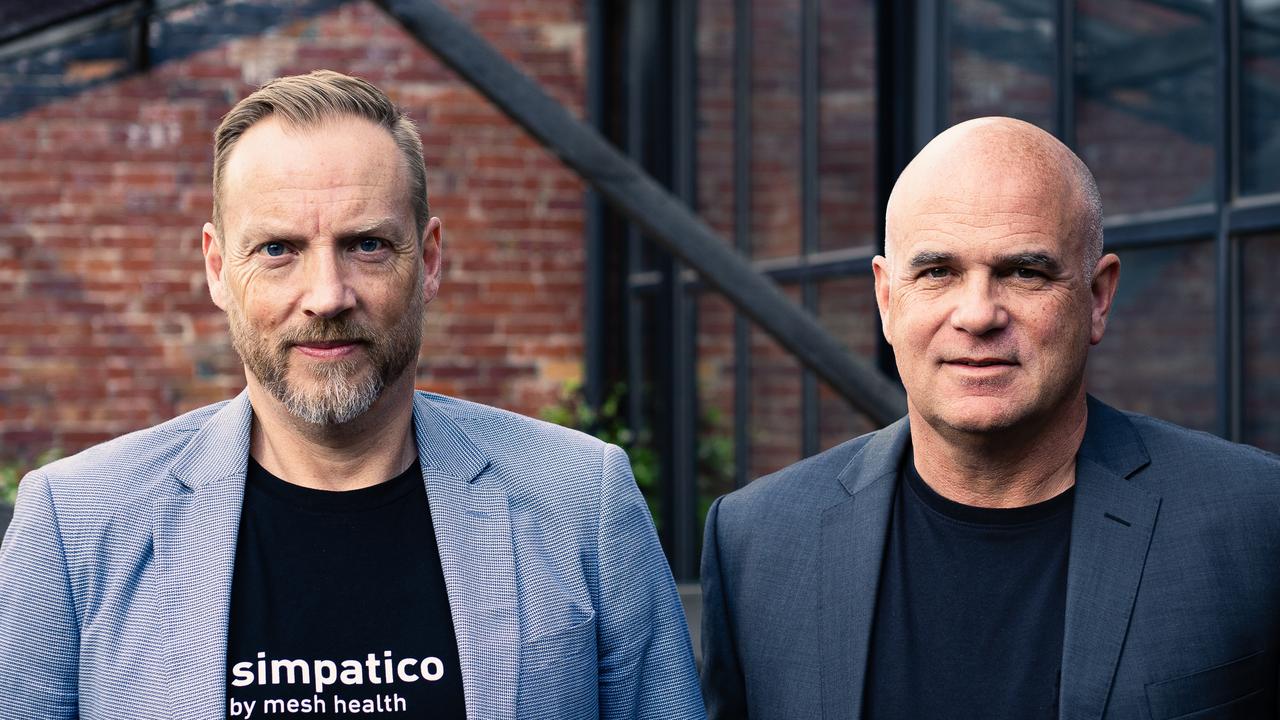Aussie mental health start-up impresses Microsoft, landing Teams launch
An Aussie start-up which has built a chatbot to help deal with early signs of stress has landed a deal with Microsoft to enter Teams and Microsoft 365.

An Australian start-up has built a mental health chatbot which has impressed Microsoft, with the company landing a deal to integrate the chatbot into the US tech giant’s platform — which is seen as one of the largest corporate marketplaces in the world.
Mesh AI has developed a product it calls Simpatico AI, a tool which allows users to have what the start-up describes as “AI-driven” conversations to provide early support to stress or any other issues workers are facing.
The conversations are powered by an engine trained on a specialised dataset containing mental health terminology, symptoms and treatment.
On Thursday it announced Simpatico Teams, the next evolution of the product which will integrate across Microsoft Teams and Microsoft 365 including Copilot.
The developments arrive as many tech companies have raced to build their own AI products or incorporate the technology into their services.
AI in the mental health space is a little more rare, however many companies over the past half year have come forward to say the technology can often provide a more equitable experience as it’s able to be scaled and attend to more issues at once.
One such example is Barb Hyman’s start-up Sapia.ai, an AI recruitment service which has signed deals with the likes of Qantas and Woolworths.
The platform can ensure every candidate is responded to, which corporates believe can help maintain the relationship with those who may have applied and been rejected from a role.
Mesh AI’s product exists in the growing theme of the digital workplace of the future, in which companies are seeking to replicate the tools and amenities available to workers in not just a physical office but also in a digital setting.
Alistair Wardlaw, Mesh AI chief executive, said the start-up had gotten lucky with Microsoft, with the tech giant having reached out first.
“We were very fortunate that several months ago Microsoft came to us and said there was a huge amount of client demand looking for mental health support within the team’s framework,” he said.
“If you think about Microsoft’s 300 million monthly active users, it’s a pretty big audience to go after in terms of your go-to market strategy as opposed to launching a stand-alone app.”
Simpatico Teams was not just a chatbot but rather a mental health ecosystem which could provide on-demand support, information around different mental health conditions and also recommend when it might be time to see a counsellor or psychologist.
The service could also be used by senior staff at a company to ask for the general mental health state of the company based on aggregate data on how Simpatico was being used, Mr Wardlaw said.
“The next phase is about trying to provide some recommendations on what organisations could do based off of those figures, using the AI to give them some predictions,” he said.
“The framework of Sympatico AI is about trying to provide hyper-personalised experience about a person’s own mental health so it’s not generic content.”
Simpatico AI would respond to different questions about mental health conditions using aggregate data about the position, age and organisation of the person asking, he said.
Dr Simon Kinsella, who is the official psychologist for TV programs including MasterChef Australia and Celebrity Apprentice, was brought on to develop the Simpatico program.
“What people are finding in the community is that there’s not enough human psychologists to actually do the work and there are huge waiting lists. Obviously, that was a massive problem through Covid,” Dr Kinsella said. “So organisations are looking around for ways of meeting their obligations.”
While the start-up could not direct those facing an immediate crisis to services such as Lifeline, it could provide information on who to call. It could also provide some information to third-party providers should the person speaking with the service which falls under a category called “dynamic consent”, Dr Kinsella said.
“What I’m talking about is that if a person opts to be referred to a third party, like an Employee Assistance Program, they can give consent for a certain amount of information to be shared so that that connection can be bridged,” he said. “That’s already part of our framework and part of the model.”
Originally published as Aussie mental health start-up impresses Microsoft, landing Teams launch





